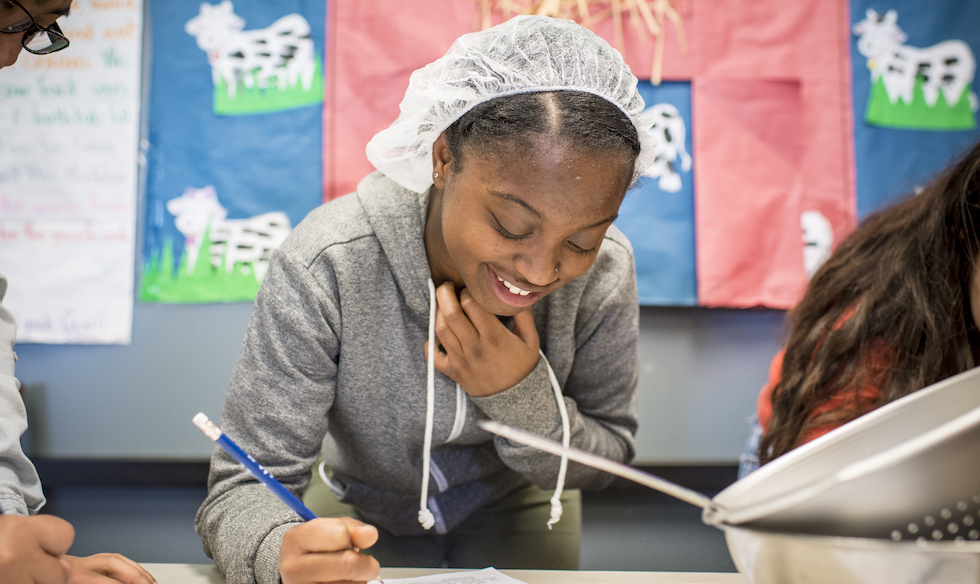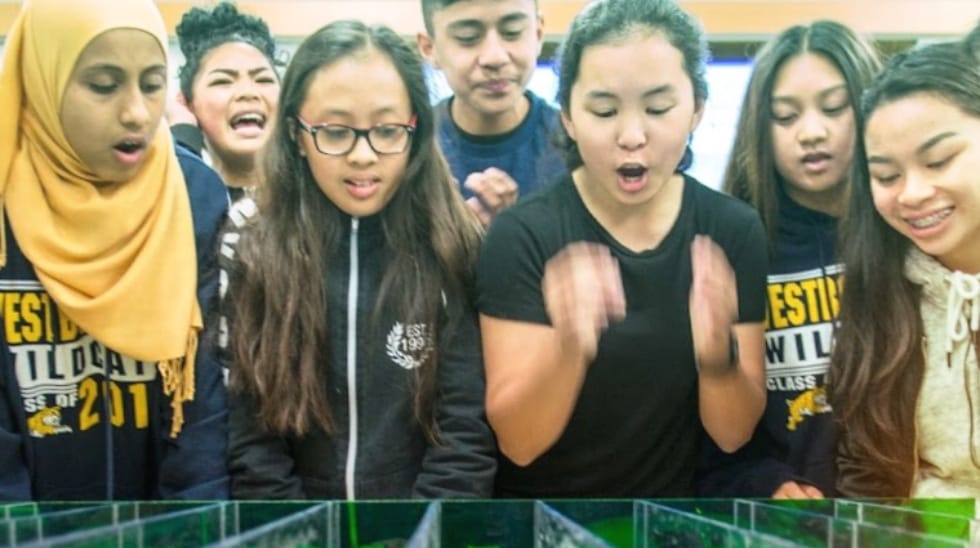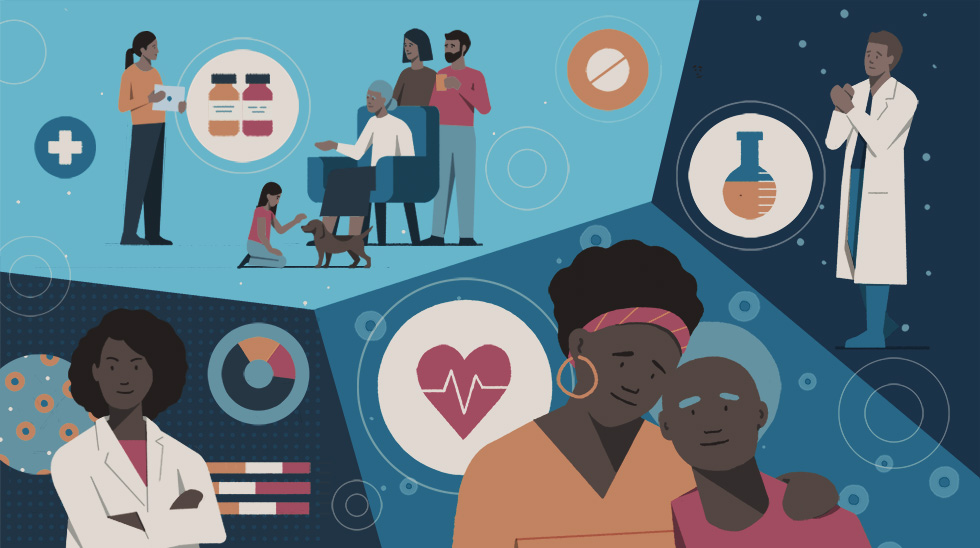Kindergarten to Careers
Kindergarten to Careers is Genentech’s enterprise-wide commitment to building pathways into our company and the broader healthcare industry for the next generation of talent in science and medicine.
As a leader in the biotechnology industry, we believe we have a responsibility to drive meaningful change both within and outside of our company by providing pathways into STEM fields for students along all stages of the education continuum.
Kindergarten to Careers reflects our vision to Transform Society. Through this initiative, we are:
- Changing our business practices by expanding early-in-career opportunities for the next generation of scientists and STEM professionals at Genentech. For example, in 2020, we partnered with the FDA to launch our Howard University Regulatory Policy Program, a two-year fellowship for graduate students at Genentech.
- Building connections with future talent and organizations to expand career access and leveraging our employees as mentors and partners. Through Futurelab, our STEM education initiative, we support all K-12 students in the South San Francisco Unified School District (SSFUSD) to help build their skills and capabilities in science and inspire them to pursue careers in STEM fields. In 2022, we scaled our impact nationwide with Futurelab+, which offers a free industry- and standards-aligned high school biotechnology curriculum that equips teachers to engage students from a variety of backgrounds, includes lessons that addresses inclusivity in clinical research, and helps students understand the wide range of job opportunities available in STEM.
- Strengthening the education and workforce systems by investing in education experts, academic institutions and nonprofits that serve students and young professionals in need.
*These experiences of inequality are observed to be less pronounced in other fields of study.1
Learn more about our Kindergarten to Careers approach and our work to help diversify the scientific and medical workforce by reading the stories below.
Futurelab+ connects students and teachers to the future of biotechnology through virtual and in-person learning resources.
Futurelab Fuels Curiosity and Prepares Students for a Career in STEM
Genentech’s Futurelab expands to more than 2 million California high school students and future innovators.
Grants To Spark Change With Communities
Learn how we are supporting solutions to address gaps in healthcare and STEM education.


